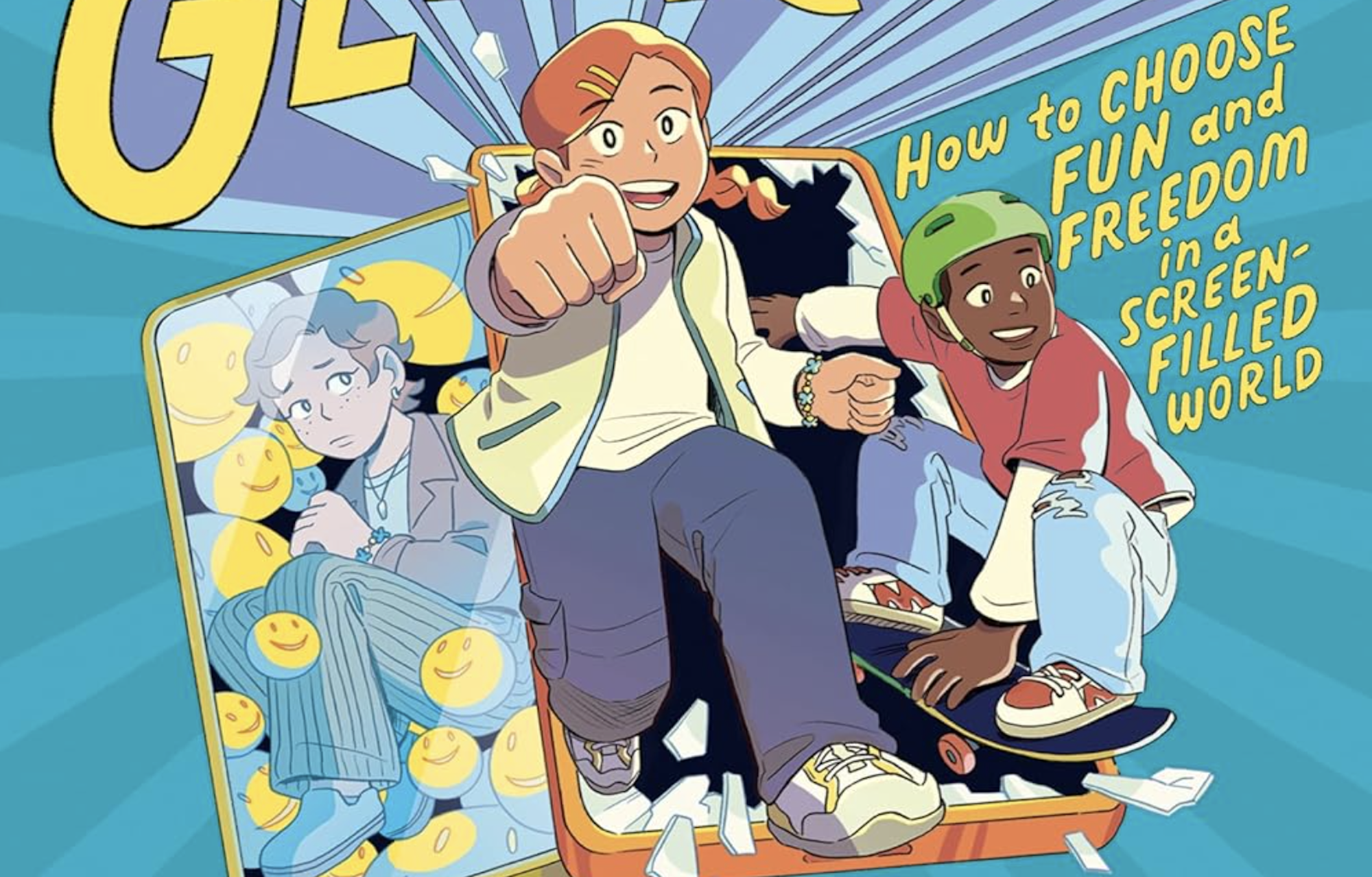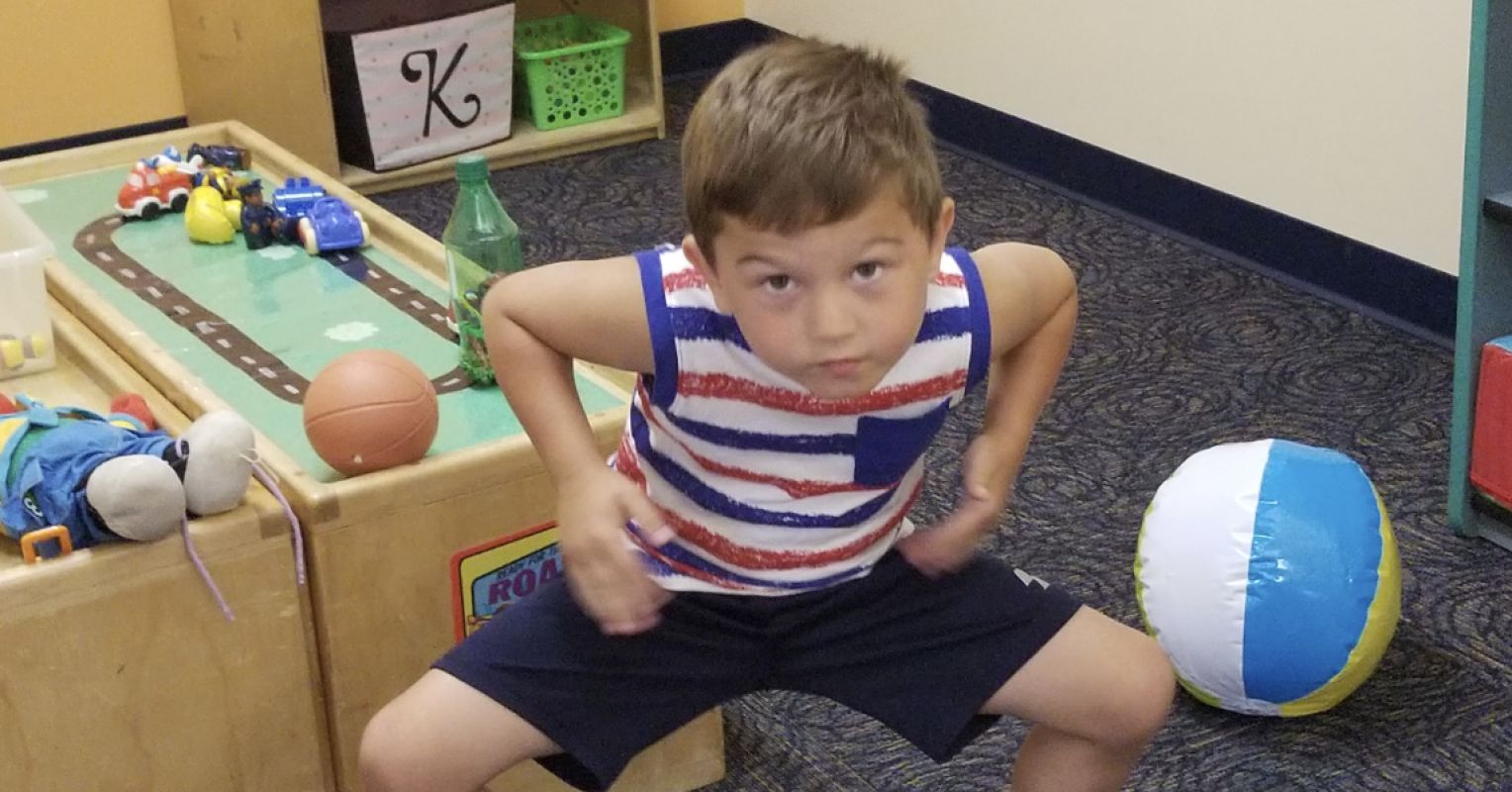#parenting
#parenting
[ follow ]
#boundaries #communication #child-development #social-media #education #discipline #conflict-resolution
fromTODAY.com
8 hours agoThe 1 Life Skill This Educator Made Her Son Learn Before Middle School
So before her 12-year-old started middle school last fall, she taught him how to make a frozen pizza. "His immediate response was, 'No, I don't want to,' Rosenbleeth recalls. After all, the oven is "hot and intimidating." And why would a tween want to make his own pizza when his mom was doing a perfectly fine job making it? "So I think we were working on two different skills," she says.
Parenting
fromScary Mommy
12 hours agoWhat Watching 'The Pitt' Taught Me About Parenting
To me, the drama of has a lot of parallels with modern-day parenting. Sure, putting a Paw Patrol Band-Aid on your kid's scraped knee isn't exactly the same as treating a degloved foot (although judging by the screaming, you wouldn't know it). And betting on where a runaway ambulance will end up is higher stakes than betting on which child will crawl into your bed tonight.
Television
fromBusiness Insider
11 hours agoBoth of my parents died before my son was born. My grandmother ended up being my son's grandma too.
My mom died when I was young, so I grew up spending summers with her mom in South Dakota. I loved that time with her, but I often only saw her that one time of year. I lived back in Florida with my dad for the rest of the year. When my grandma was older, she embraced the snowbird lifestyle and spent half the year in Florida to escape the Midwest winters.
Parenting
Wellness
fromSilicon Canals
19 hours agoQuote of the day by George Bernard Shaw: 'We don't stop playing because we grow old; we grow old because we stop playing - Silicon Canals
Maintaining playfulness as an adult reduces stress, boosts creativity, strengthens relationships, and promotes youthfulness and overall well-being.
Parenting
fromSilicon Canals
21 hours ago9 things strict parents taught that sounded cruel but produced oddly capable adults - Silicon Canals
Strict, rules-based parenting builds resilience, practical skills, and genuine capability that better prepares adults for real-world challenges than indulgent praise.
fromBuzzFeed
1 day agoTeachers Are Sharing The Everyday Things Students Can't Do For Themselves Anymore
A combination of terrible (or non-existent) parenting, constantly checking phones and thus having no concentration or attention span, and most recently, the growth of AI as the answer to everything (so learning how to think for oneself or do anything for oneself is now seen as obsolete), is bringing about actual brainrot in young people. It seems to be widespread globally in the 'developed' world.
Education
Relationships
fromIndependent
1 day agoAsk Allison: My son tells me his wife screams at him and knows how to push his buttons. He feels so lost. How do I help?
Verbal abuse and retaliatory shouting in front of children damages relationships; prioritize safety, boundaries, nonviolent conflict resolution, and professional help.
fromSlate Magazine
2 days agoMy Son Has Discovered a Beloved Hobby. I'm Trying to Accept This, But It's Too Weird!
I don't think worrying and letting him do his thing are your two alternatives. I imagine that you're going to continue to (kind of) worry-as parents tend to do when their teenage and young adult (and sometimes even older adult) children become involved in something they find weird or don't understand or that just gives them the ick.
Parenting
fromSlate Magazine
3 days agoMy Son Is Starting to Notice the Way His Teachers Treat Him. I Have to Do Something About It.
Start with being completely honest with yourself: You do want to meddle. I'm not saying it's necessarily wrong to, despite the word's negative connotation. So let's call it, instead, "get involved," which is a bit more neutral. To get involved, begin the conversation at the first rung on the school ladder: with his classroom teacher. (If a regularly scheduled parent/teacher conference is coming up soon, save it for then; if there's nothing on the horizon, contact the teacher and ask for a private meeting.)
Parenting
fromPsychology Today
4 days agoOverthinking Is The New Failure to Launch
What these parents don't realize is that today's failure to launch is not always behavioral in nature. It can be due to cognitive constipation (bear with me on the Gastrointestinal metaphor; I am trying to make a point). Yes, that's right. It is those nasty doses of overthinking-the behind-the-scenes fuel-that crank up the hidden anxiety burning in your adult child's brain.
Mental health
Chicago Cubs
fromCubsinsider
4 days agoThe Rundown: MLB Sets Late Trade Deadline, Valdez's Antics Could Be Costing Him, Cubs Have Bottom-Half System -
A parent researches costly college and car options, helps an engineering-minded son with applications, hopes the Cubs boost interest, and feels exhausted maintaining the site.
fromFast Company
4 days agoCan AI make life easier for working parents?
The moment I rise in the morning, I check my phone. Bad habit, to be sure. But I know I'm not the only one. There is a message from an editor marked "urgent," there is an email from the school reminding me it's parent-visit morning, and a text from a fellow soccer mom making sure I remembered the time change for Sunday's tournament. (I hadn't). The day had barely started, and I already felt hopelessly behind.
Parenting
fromScary Mommy
5 days ago"I Talked My Husband Into A Vasectomy & Now I Regret It" & 34 Other Mom Confessions
I can't even count the number of thoughts I have every single day, just bouncing around in my head like a ping pong ball. I think every mom feels the same way, which is why when you ask a mom what's on her mind, her response could range from something like "Oh, just thinking about my kid's new soccer team" to "The fall of democracy and the state of the world."
Parenting
fromVulture
5 days agoWhat Matty Matheson Watches (and Plays) With His Kids
I think my personality definitely leaned Michelangelo, I still think TMNT is one of the greatest movies ever, too. I have two brothers and a sister, and the deal was that we had to be good in church for like a month to be able to go to the theater to see that movie. The last weekend, when we were supposed to go to the movies right after church, one of us got in trouble.
Parenting
fromTODAY.com
5 days agoNo Shorts, No Jackets ... No Problem: Why Middle Schoolers Aren't Bothered By Freezing Weather
You are trying not to shiver while bundled up in a coat, scarf, hat and mittens. In the meantime, your child is wearing ... shorts. It's shocking. And confusing. And somehow personally upsetting. Jenna Bush Hager and Sheinelle Jones discuss the trend in the fourth hour of TODAY on Jan. 29. "Why is it that middle schoolers wear shorts, even in the bitter cold?" Sheinelle said, introducing a clip of Amy Poehler discussing the topic with actress Claire Danes on her "Good Hang" podcast.
Fashion & style
fromBuzzFeed
6 days agoThe Internet Is In Flames Over This Note A Husband Left His Family Before Going On A Work Trip
"Your kids are two and four months...this isn't a note to your wife. It's a reminder that your focus is on them, and she needs to keep doing what she's already doing while you're gone and she's doing it solo," added u/Appropriate_Age_627.
Relationships
fromSlate Magazine
6 days agoMy Son Accidentally Hurt His Friend at a Sleepover. His Parents Have Made It a Friendship-Ending Offense.
A few weeks ago, our son's friend "Derek" came over for a sleepover and during the night somehow my son bruised his nose. We didn't know until he went home the next day and his parents texted us. Of course, we apologized and our son said it was an accident, but his friend's father refused to let him play anymore. Apparently the boy wanted to go home at 3am, but he didn't say so to us. (They were up late playing games).
Parenting
fromSlate Magazine
6 days agoMy Husband Wanted to "Teach My Mom a Lesson." He Used Our Toddler to Do It.
Your husband did a pretty terrible thing. First, remind him that your mom's making a choice to not wear deodorant. It's an odd, kinda gross one, but it's her choice. Unless your mom is putting your husband in a headlock every time she visits, he has to learn to deal with it. But one way he can't deal with it is to use your 3-year-old child as an insult shield. That's just bad parenting-bad adulting, really.
Parenting
Travel
fromBusiness Insider
6 days agoMy husband and I take separate solo vacations, and it makes our marraige stronger. We've learned to appreciate each other more.
Taking separate solo trips lets parents decompress, pursue individual interests, and return to family and each other with greater appreciation.
fromScary Mommy
6 days agoParents Put Together A "Family Responsibilities Framework" For Their Kids
Now, some parenting experts say that paying kids to do chores is actually counterproductive in some way, and kids should help around the house without the expectation of financial compensation because, obviously, one day, they're going to grow up and have a house of their own. And as we all know, no one is paying us to make our beds when we're grown.
Parenting
fromTODAY.com
1 week agoA Florida Mom Went Viral as a 'Naked Mom.' Now She Wants to Know How Others Feel About It
The term "naked mom" sounds like internet bait. In reality, it describes something far less dramatic: a mother moving through her own home without turning every day moments like showering or changing into a performance of modesty. Supporters see it as a way to strip shame from bodies and raise kids who aren't scandalized by anatomy. Critics, meanwhile, worry about boundaries, privacy and where comfort should - and shouldn't - begin inside a family.
Wellness
fromBavarian Football Works
1 week agoAfter building reputation, Bayern Munich's Vincent Kompany looking to eschew 'F' bombs and outbursts
I don't use the f word as often. My kids saw me swearing on YouTube videos. That doesn't exactly put me in a strong position at home when it comes to parenting, telling them what to say and what not to say. But if I get really angry, if we're being too 'arrogant' - we need to be confident in our own strength and what we can do, and we know that. But I don't like unnecessary arrogance,
Soccer (FIFA)
fromPsychology Today
1 week agoYour Defiant Teen Might Be More Insecure than you Realize
Whether the teen is challenging the parents' authority, doing poorly in school, or experimenting with substances, teenagers can make parents want to pull their hair out. It often feels that the efforts we make to help our kids prepare for their futures are often met with arguments, hostility and/or lack of interest. This can be remarkably frustrating and can cause us to get upset and sometimes lose our tempers. What we may not realize is that teenagers often are just posturing their defiance. They are unsure and uncertain about themselves and their futures.
fromPsychology Today
1 week agoWhen A Parent or Adolescent Uses Wounding Words
The parent or adolescent needs to find a better alternative, and the adult needs to lead and show that way. After all,now is later, an adolescent is just an adult in training, and part of the parental responsibility is modeling and teaching habits of spoken communication that the young person will carry forward into significant relationships to come. Ensuring safe speech means managing unhappy emotional arousal that can betray them into saying what can inflict serious injury.
Parenting
Parenting
fromSilicon Canals
1 week ago7 phrases Boomers heard from their parents that would be considered emotional abuse today-but shaped the most resilient generation alive - Silicon Canals
Mid-20th-century strict, stoic parenting produced emotional suppression yet fostered resilience, strong work ethic, and emotional regulation in that generation.
fromSlate Magazine
1 week agoMy Husband Is Forcing Me to Choose Between Our Kid and Our Marriage. This Is Impossible.
Which, if you ask me (and you did ask me, right?), is awful of him. Possibly unforgivable. This is your child. At 23, he's still in the process of becoming who he's going to be. Wanting to move back home so that he can finish school doesn't seem to me "entitled" or immature, so unless there's a lot of untold backstory here that supports your husband's convictions ... well, those convictions just seem unfeeling and selfish to me.
fromRoger Ebert
1 week agoLightning in a Bottle: Angus MacLachlan on "A Little Prayer" | Interviews | Roger Ebert
Writer-director Angus MacLachlan's "A Little Prayer" is a quiet domestic drama about an older couple in North Carolina, their troubled adult children, the children's significant others, and their struggles to find peace and happiness despite the mistakes they've made and the distress they've caused others. It received respectful national attention and found a theatrical audience, even though it had little promotional money behind it and features just one cast member who's anything close to a household name (ace character actor David Strathairn).
Film
Gadgets
fromBusiness Insider
1 week agoI'm raising my kids with '90s and retro-style tech. VHS tapes, DVDs, and more are helping us slow down and connect.
Parents introduce '90s analog items—film camera, typewriter, Tin Can phone, VHS and Blockbuster-style movie nights—to balance modern tech and foster kids' independence.
fromScary Mommy
1 week agoWoman On TikTok Says Parents In Good Marriages Need To "Warn" Their Kids About Bad Ones
Are you a bona fide cycle breaker, someone who grew up in a broken or even abusive family situation and has done the work and changed everything so that your kids can have a better, happier life? First off, I salute you - I, too, didn't have great examples of marriage growing up, but with some luck and a lot of discernment, I now find myself in a very happy and healthy marriage. My young son has a much different impression of how adults get along than I ever did.
Parenting
fromScary Mommy
1 week agoThe Confessions 46 Moms Are Clinging To So They Can Make It Through The Darkness RN
Life has truly been life-ing here in 2026, and the only way any of us moms are going to make it through the darkness is by finding spots of light. And, sometimes, that means we have to be the spot of light for ourselves.
Women
fromScary Mommy
1 week agoThis Mom Says That The Woman With The Happiest Relationships Are "Useless"
"The smartest women with the happiest relationships are the useless women," Dianna Lee begins in her video. "As you can probably tell, I'm a highly capable woman. I'm capable throughout all areas of my life, through my schooling days, to my career, and I attacked my marriage life in exactly the same way. I just executed. I was fast, efficient, and I knew exactly what needed to get done. And in retrospect, it was so wrong."
Relationships
fromSlate Magazine
1 week agoI Thought We'd Reached the Easy Stage of Parenting. Now My Wife Wants to Risk It All.
My wife and I have two kids, boys aged 4 and 6. I'm very happy with our family as it is. The kids are both out of diapers and in school all day. They're sleeping, we're sleeping. I feel like we've got a handle on this thing. But now my wife is saying she wants another one. She's 40, I'm 45-it's not totally out of the realm of possibility that we could have another one.
Parenting
Parenting
fromwww.theguardian.com
1 week agoAs I navigated the hazy days of early parenting, voice messages from friends kept me afloat | Samantha Allemann
Voice notes serve as a practical, less intrusive alternative to phone calls, sustaining friendships and easing the logistical challenges of parenting and everyday life.
Parenting
fromIndependent
1 week agoOur daughter only wants her mum - how can I step in to help soothe her and share the load?
Young children often prefer one parent; gently stepping back and rebalancing caregiving duties prevents caregiver burnout and supports children's developing emotional regulation.
fromScary Mommy
2 weeks agoCan Everyone STFU & Stop Asking Me When We Will Cut My Son's Hair?
Neither my husband nor I ever had hair like my son's, but somehow he has curls that women would pay hundreds for at the salon. I would know, because I've been told so over and over again. His perfectly bouncy ringlets have become his signature look. You know Spencer by his hair. I'm always shocked when I look back at old photos to see how it's grown.
Parenting
fromBuzzFeed
2 weeks agoAshton Kutcher Reflected On The Backlash To His And Mila Kunis's Bathing Habits
It was on [Dax Shepard's] podcast, and we were doing press ... Somehow the conversation derailed into bathing habits, and then we started talking about how we all don't bathe our children very often, and/or ourselves. Like, I shower every day, but I don't wash my hair every day. I don't find that to be a necessity,
Public health
[ Load more ]




